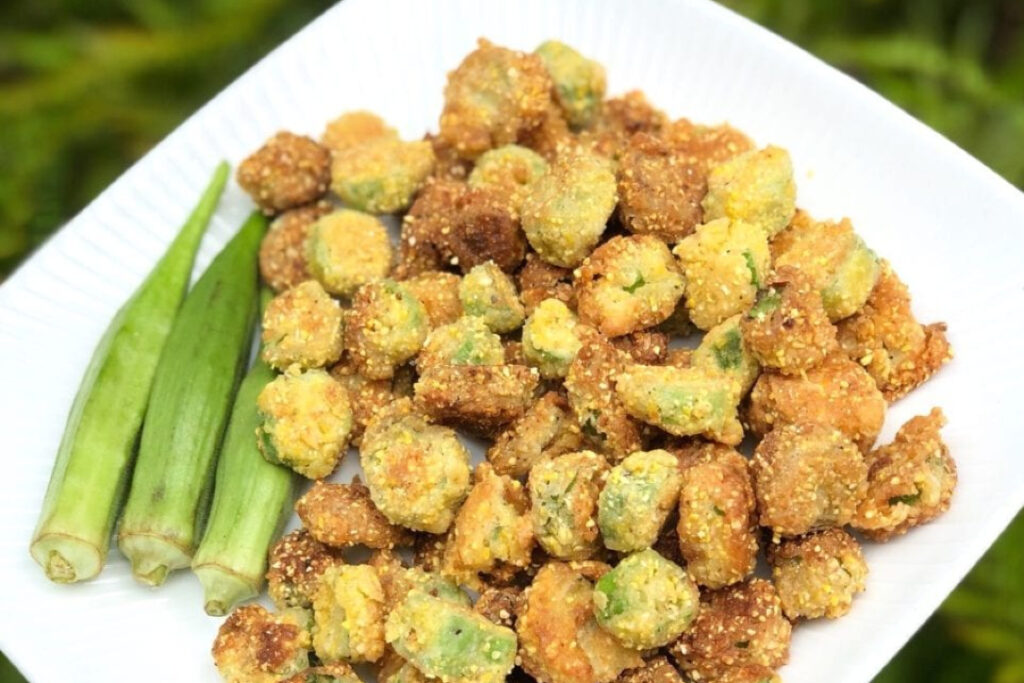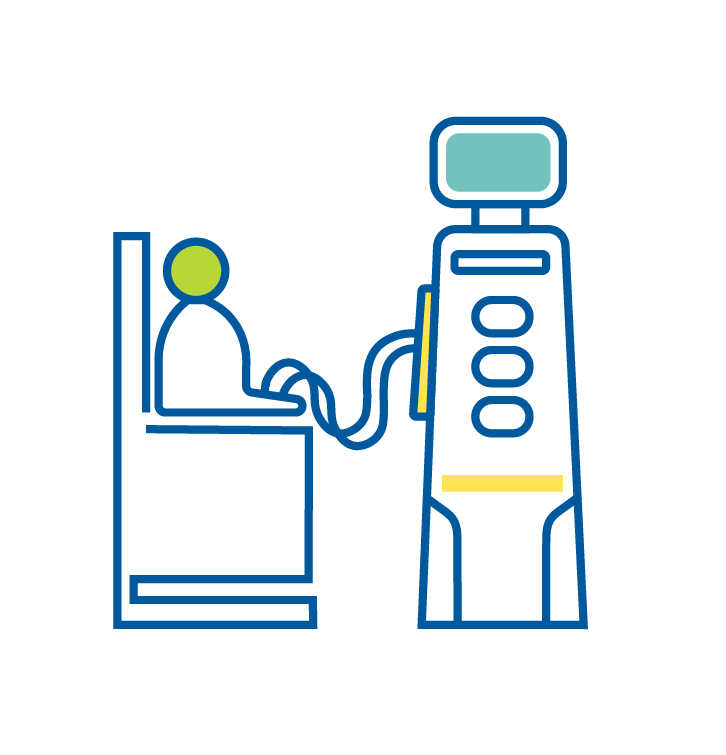Southern Fried Okra

Okra is a vastly underrated vegetable. Some people don’t appreciate the texture when it is cooked in moisture (boiled, stewed). However, most people appreciate the unique flavor, pop of the seeds and crunch of okra when it is lightly battered and fried. Definitely worth a try!
Makes
Serving size
Ingredients
½ cup unbleached flour
½ cup yellow cornmeal
⅛ teaspoon salt (included in the nutrient analysis)
¼ teaspoon cayenne pepper
¼ teaspoon black pepper, freshly ground
1 medium egg
2 tablespoons milk
⅓ cup sunflower oil
3 cups okra, fresh or frozen, cut into ¼-inch disks, stems removed
Instructions
- Preheat oven to 300°F.
- Combine flour, cornmeal, salt, cayenne pepper and black pepper in a medium mixing bowl.
- Mix well with a whisk.
- Beat the egg and milk together in a shallow bowl.
- Heat the sunflower oil in a large skillet.
- Dip the okra pieces into the egg batter and then roll in the cornmeal mixture.
- Fry about ⅓ of the okra in the pan. Turn over after 2 minutes. Cook 1-2 minutes more until each piece is evenly golden.
- Remove cooked okra with a slotted spoon. Drain each batch on paper towels for 1 minute.
- Transfer first batch of fried okra to a baking dish to keep warm while cooking remaining okra.
- Place 2nd batches of fried okra in the oven until the final batch is done.
- Serve immediately.
Cooking Tip
If you are using frozen okra, drain and pat dry before you bread and fry them. This will result in a crunchier texture.
Recipe Contributed by FamilyCook Productions
Nutrition Info
Nutrition Info
Makes: 6 servings Serving size: ⅙ recipe
Calories
213
Fat
14 g
Saturated Fat
2 g
Trans Fat
<1 g
Cholesterol
28 mg
Carbohydrates
20 g
Sugar
2 g
Fiber
3 g
Protein
5 g
Sodium
67 mg
Calcium
74 mg
Phosphorus
79 mg
Potassium
167 mg
Your support goes further with AKF
Your donation allows AKF to support people wherever they are in their fight against kidney disease – from prevention through transplant. For more than 50 years, we have fought on all fronts for millions of people impacted by kidney disease.
Donate today to support our work


